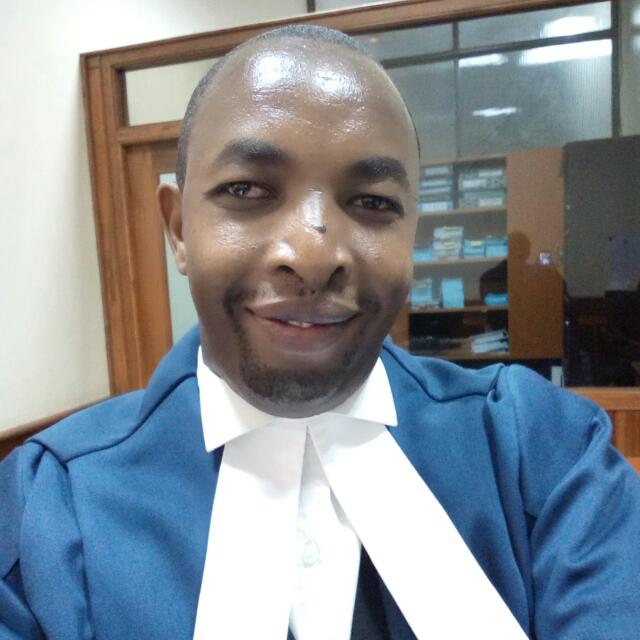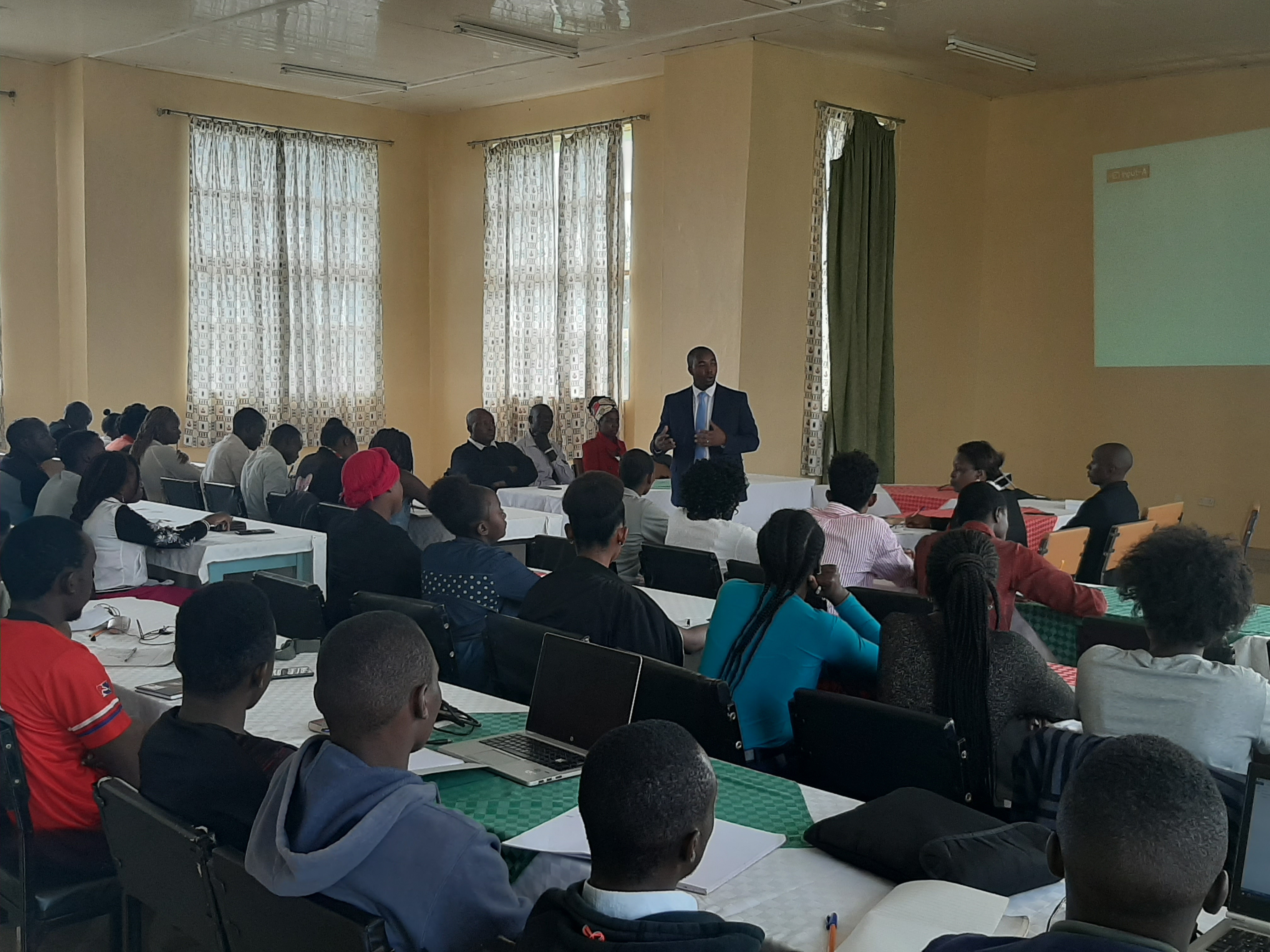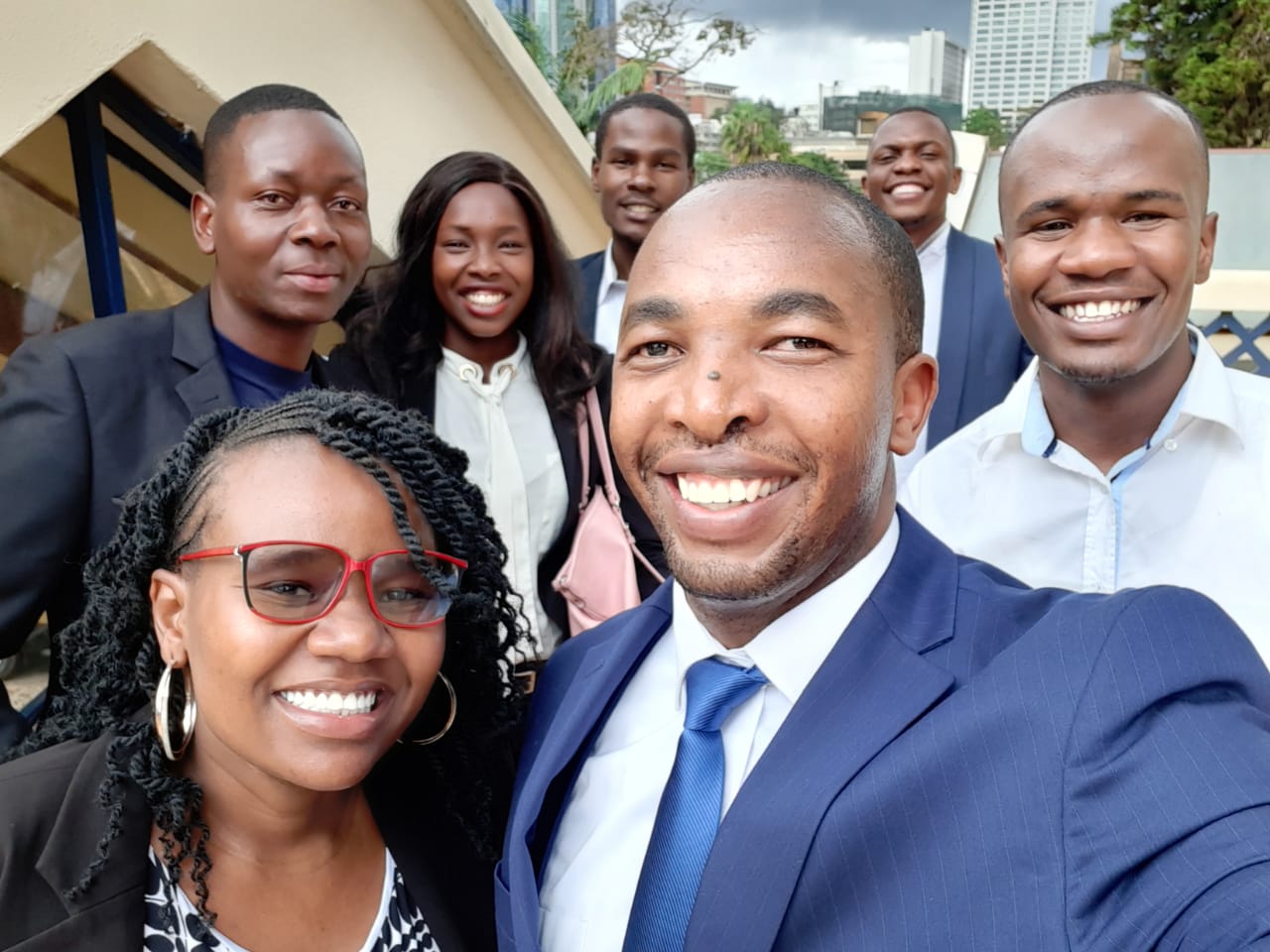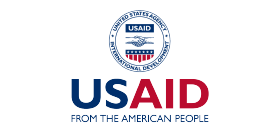Impact Stories & Blogs
Our team share their insights and perspectives on the impact our program is having on youth in East and Central Africa.

Charles Munyua, Kenya, Cohort 7 alumnus, is a champion for effective governance and an advocate for the political participation of youth and other marginalized communities. As a First Clerk Assistant in the Parliament of Kenya, Charles researches and drafts legislation and supports the passage of motions and resolutions. He clerks the Senate Standing Committee on Justice, Legal Affairs and Human Rights, and issues he has work ed on include harmonizing the laws related to the new Constitution of 2010 and the governments of the 47 counties of Kenya, the legislative framework to fight corruption, and Committee inquiries on topics such as policing and human rights. With the onset of the pandemic, he joined the national fight against the virus and now also serves as Clerk for the Senate Ad Hoc Committee on the COVID-19 Pandemic.
ed on include harmonizing the laws related to the new Constitution of 2010 and the governments of the 47 counties of Kenya, the legislative framework to fight corruption, and Committee inquiries on topics such as policing and human rights. With the onset of the pandemic, he joined the national fight against the virus and now also serves as Clerk for the Senate Ad Hoc Committee on the COVID-19 Pandemic.
Charles uses his platform at the highest level of government to elevate other voices and foster inclusion in the political process. “In our country, public participation in government is not something that most citizens have understood, it’s not something that people are very keen on and there’s usually this perception that government will do whatever government wants to do and giving our views will not make a difference.” Charles works to combat this perception by designing avenues through which people can engage with government. “One of the things I have been very keen about is how to make sure that the traditionally marginalized groups that do not take part in government processes are brought on board.” For the Committees on which he clerks, “I'll go out of my way to look out for women leaders, for youth leaders, for leaders of persons with disabilities, marginalized communities, and bring them to the table, so that they can speak directly to the lawmakers on what their needs are, and how a particular law, bill or policy would affect them. Thus, the lawmakers are able to get their first hand perspective from this approach, and incorporate it in the laws they are making.”
Charles also used his connection to Parliament and his role as President of the YALI RLC EA Kenya Alumni Chapter to lead a 2-day Youth Leadership Transformation Summit. During the Summit, 350 young people from all 47 counties of Kenya met with members of Parliament and other national officials to explore the question of how government can be more responsive to the needs of young people.
Another one of Charles’ long-running passions is digitizing and modernizing Parliamentary processes to make the institution nimbler and, thereby, make governance more responsive. At the onset of the coronavirus pandemic, Charles proposed to the Senate Ad Hoc Committee on the COVID-19 Pandemic to try virtual meetings for the first time in Kenyan Parliamentary history, allowing MPs and Parliament staffers to comply with social distancing rules as well as to engage more diverse groups of stakeholders as they confronted the global challenge. The virtual switch was so successful that the Senate, and later the National Assembly, amended its Rules of Procedures.
Charles also proposed and spearheaded the digitalization of the Senate Table Office, an office that processes legislation, prepares and publishes Senate proceedings, and serves as a repository for documents needed by the legislature. “Whenever an MP would come seeking to get a quick copy of something, it would take ages to find that document.” After digitalization, accessing records became much faster. Although Charles pushed for this procedural reform before the pandemic, it was a change that proved to be prescient. His success led him to be nominated to another committee dedicated to re-engineering Parliamentary procedures. His success led him to be nominated to a taskforce on automation of parliamentary processes which made recommendations to create synergies, eliminate duplication, and promote cost effectiveness and efficiency.
Charles credits his YALI RLC EA training with improving his ability to effect organizational change in Parliament – he points specifically to their modules on design thinking and stakeholder engagement.
“That is partly why some of the initiatives that I have been passionate about have actually worked. When I joined in 2014, I would have this really good idea, and I would draft a memo, submit it to my director saying, ‘Have you thought about how we can do this, and how it would make a difference and so on?’ And essentially, all those memos would go and meet an early death at the director’s table; they would never be taken up. But after I went through YALI RLC EA, I learned how to engage stakeholders, first understand where they were, what their most pressing needs are, how they viewed things, and try to engage them from their perspective, as opposed to from my own perspective.”
Charles may be working every day on issues of national importance, but he has also left a positive impact on his local community. Charles co-founded the Lukenya Hills Residents’ Association to empower his neighbours to address challenges with service delivery. Water outages, broken security lights, neglected maintenance, and burglaries were a persistent problem in his neighbourhood. Service delivery had broken down because of a vicious cycle between residents fed up with poor services and an unresponsive management company. After going through YALI, Charles felt more confident and equipped to engage his co mmunity members, most of whom were his elders, and convince them to take control of their own neighbourhood services.
mmunity members, most of whom were his elders, and convince them to take control of their own neighbourhood services.
“I had resided in that place for three years, and I had seen the frustration that people had, but I did not have the courage to actually take up the mantle of leadership, or to persuade other people on why we need to do what we need to do, and how to actually go about it. But when I went through the YALI program, the first thing that YALI did is it gave me the, the affirmation that I am actually a leader and I can lead.” Charles was the Chair of the Residents’ Association for the first year, and in that time, the water borehole pump was repaired, security lights fixed and equipped with energy-saving bulbs, and the security guards were re-hired, trained and given better wages. These changes led to a better quality of life for about 400-500 neighbourhood residents.
Above all, Charles’ most important takeaway from YALI was the network. “In YALI, I found a community of other people who are like me, people who believe that we can actually change Africa. We can bring change to our communities; we can bring change to our countries. We can do small actions every day that ultimately have a ripple effect in how our country is governed. And we can actually get their country and the continent that we envision.”
“What I learned from my experience in YALI and through interacting with other people who are in the Public Management track and while working for government in different countries is that there are small measures and small actions we can do every day that actually bring about change. And so that is what we have been doing. That is what I have been doing. So, I would say it is that wind in the sails.”
“In Kenya we have about 1,300 young people who graduated from the YALI RLC EA, and we have about 1,000, who are alumni of the Mandela Washington Fellowship. We have almost 50,000 members of the YALI network across Africa, and this is a growing community that, with time, is going to change a lot of things. I think what YALI has managed to do in just a span of 10 years is going to influence our country and our continent for many years to come.”



